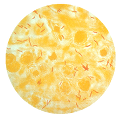Mathematic Models Help Formulate Strategies for Controlling Infectious Disease
 Although largely eradicated in the United States, the scourge of bovine tuberculosis continues to devastate cattle herds and other animals in parts of the developing world. The disease is also still a threat to public health where it can be transmitted via contact with infected animals and by consuming unpasteurized milk.
Although largely eradicated in the United States, the scourge of bovine tuberculosis continues to devastate cattle herds and other animals in parts of the developing world. The disease is also still a threat to public health where it can be transmitted via contact with infected animals and by consuming unpasteurized milk.
Folashade Agusto knows firsthand of the devastation in her home country of Nigeria, where few control measures are in place to help eradicate bovine tuberculosis (TB). A postdoctoral fellow at the National Institute for Mathematical and Biological Synthesis, Agusto's research focuses on developing mathematical models to analyze the transmission of bovine TB in cattle, wildlife and humans.
Agusto's models also evaluate the effectiveness of various control measures, such as the use of vaccination, culling, hunting, and containment of infected cattle or "bio-security." "Hopefully, the research will aid decision makers in formulating the best strategies for controlling the disease," Agusto said.
Every year, TB causes nearly two million deaths worldwide, and an estimated one-third of the world's population (two billion people) is exposed to the risk of contracting TB, according to the World Health Organization (WHO). The primary causative agent in humans is Mycobacterium tuberculosis, whereas TB in wildlife results from infection by Mycobacterium bovis. The WHO has classified bovine TB as one of seven "neglected endemic zoonoses" that can spread to humans, and has said that in developing countries, where HIV and bovine TB are likely to be common, the morbidity and mortality rates could be higher for human TB. In addition, patients with bovine TB often do not respond to the drugs commonly used to treat TB, sometimes resulting in a fatal outcome. Other, far more expensive, drugs are often needed.
Originally from Lagos, Nigeria, Agusto comes to NIMBioS from the Federal University of Technology Akure in Nigeria where she taught mathematics. Agusto earned a Ph.D. in mathematics from the University of Ilorin in Nigeria in 2008.
Agusto became interested in mathematical modeling of infectious diseases after she attended a conference organized by the African Mathematics Millennium Science Initiative in Nairobi, Kenya, in 2006, where she presented her research on oxygen absorption in aquatics. She began research on avian influenza with Dr. Abba Gumel, a mathematics professor at the University of Manitoba. She found further motivation in the work of Dr. Suzanne Lenhart, professor of mathematics at the University of Tennessee and associate director of education, outreach, and diversity at NIMBioS. Lenhart uses mathematical models to design optimal control strategies. Agusto continues to collaborate with Gumel and Lenhart as a part of her research.
Agusto's research into mathematical modeling of infectious diseases also extends to malaria. While at NIMBioS, Agusto's research agenda includes designing an optimal control model for the malaria vaccine.
For more information about postdoctoral fellowships and other research and educational opportunities at NIMBioS, visit our website at http://www.nimbios.org.
#
NIMBioS
1122 Volunteer Blvd., Suite 106
University of Tennessee
Knoxville,
TN 37996-3410
PH: (865) 974-9334
FAX: (865) 974-9461
Contact NIMBioS


